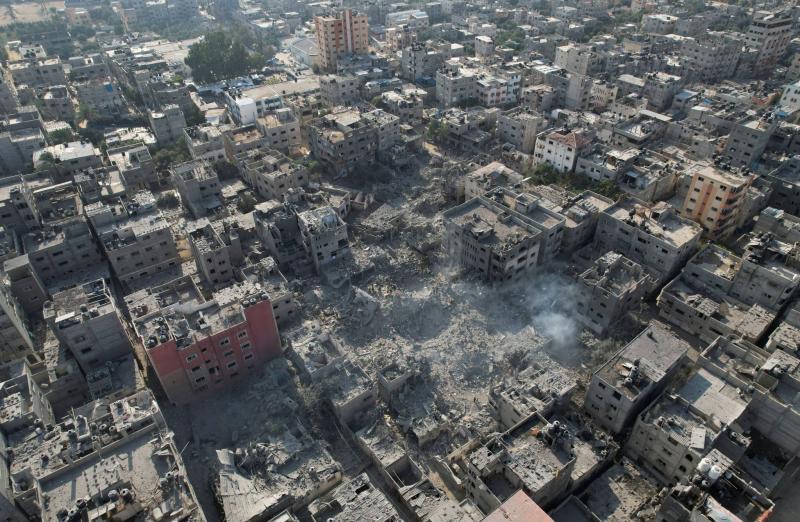Before the ceasefire was officially declared and while American officials were spreading news about their efforts to extend it for the release of additional hostages, many media and political circles in Israel and beyond relied on public Israeli positions to anticipate the opposite. Netanyahu and the Israeli war council did not deny this, but rather demonstrated it through their actions. The disappointment of those who were misled by statements and positions, most of which seemed artificial, was evident, except for those genuinely seeking a ceasefire and working toward extending the truce, such as Egypt and Qatar, hoping it might open avenues for political solutions, albeit illusionary ones.
Regardless of the interpretations given to Israel's rampage in continuing to commit massacres against Palestinian civilians and collective revenge to the extent of genocide—as being for internal purposes whereby Benjamin Netanyahu aims to save himself from accountability and avoid being ousted from Israeli political life alongside his circle of extremists—it is clear that the objective of resuming military operations is much broader than these explanations.
One significant internal factor in this war may be the growing public rejection of Netanyahu's leadership of the Israeli state, evidenced by increasingly intense demonstrations calling for a reconsideration of priorities in relation to releasing Israeli hostages held by Hamas over conducting ground invasions, even if that entails accepting the latter's conditions. This could compel the war council to return to negotiations for exchange. In this context, Israeli leadership might resort to a strategy of intermittent warfare—ceasefire followed by fighting, and so forth.
However, it is certain that the disagreements between Netanyahu and his Defense Minister Yoav Galant, or the alleged disputes between Israeli leaders and U.S. President Joe Biden's administration, will not change the course of Israeli insistence on its war objectives. Despite talk of disagreements between Tel Aviv and Washington, some observers, even within Israel, believe that highlighting the disagreement between the two countries serves as a form of international cover for the rising pace of massacres in northern and southern Gaza since last Friday. Observers note the contradictions in American positions on multiple occasions, with examples such as:
- What the New York Times reported two days ago about a senior American official stating that the Biden administration had "been informed" of Israeli military plans (after the ceasefire collapsed) before their execution.
- U.S. Secretary of Defense Lloyd Austin’s affirmation after the ceasefire's collapse of his country’s support for Israel in its war, indicating it was non-negotiable.
- Netanyahu's assertion that despite the disagreements, Israel succeeds in convincing its allies, particularly the United States, of the validity of its stance.
In light of these realities, what are the implications of all these American (Vice President Kamala Harris) and Western statements that repeatedly reject any change to Gaza's borders or the displacement of its residents, especially after Secretary of State Antony Blinken called for Israel to avoid bombing civilians, at a time when everything the U.S. declares it opposes is occurring on the ground?
The direction taken by the Israeli military operation, coupled with the insistence on establishing a security zone in parts of Gaza, alongside military campaigns in the West Bank, leads to the creation of Palestinian areas as "land without a people" to be controlled by a "people without land," according to the formula of the Zionist movement as previously echoed by its founders from Theodor Herzl and David Ben-Gurion to Chaim Weizmann.
The impossibility of the goal of eliminating Hamas has been proven by Hamas’s continuous ability to target Israeli soldiers on the streets of northern Gaza and its bombardment of Tel Aviv with rockets. While some European leaders who granted Israel a green light for its military campaign under the guise of "the right to self-defense" acknowledge that ending Hamas will require a decade, as stated by French President Emmanuel Macron, Western leaders share Netanyahu's objectives when they request that Gaza be managed by the Palestinian National Authority instead of Hamas, then echoing the Israeli Prime Minister that this authority needs change. This traps them in a vicious cycle of demands that the Israeli right continues to hide behind in order to carry out its plan of liquidating the cause by rendering life untenable in northern Gaza.
Conditioning the removal of Hamas from overseeing the sector, and then requiring the Palestinian Authority to take over its management, is the flipside of what Israel claimed since 2000 when it considered that "Arafat" was not a partner in the peace process, justifying its failure to implement the Oslo Accords. During that period, the Israeli state collaborated with America to deny the existence of a partner, culminating in his assassination… The effort to eliminate the "Palestinian partner" is being repeated in 2023.




